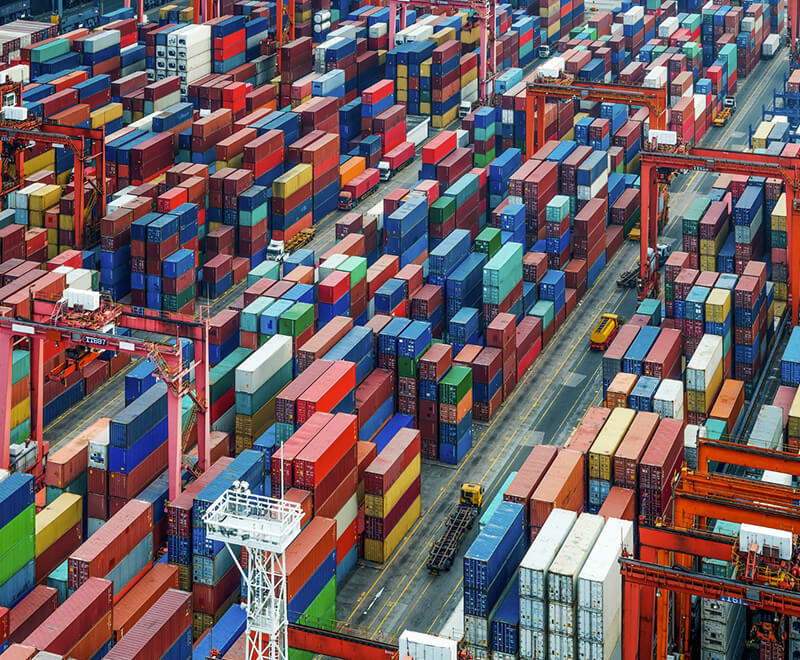Voting is now open for the Labour Party membership to select its leader, with a result due on the 24th of September. In the weeks leading up to the result Pagefield will be analysing the future of the Party in a series of blogs. In this edition, Partner James Barge sets out the context for the coming weeks and the issues facing Labour.
Labour’s leadership contest has been officially underway now for some weeks. Unofficially, the battle for the heart and soul of the party has raged since Jeremy Corbyn became leader last year. With ballot papers dropping through letterboxes this week, the febrile and divisive nature of that battle will intensify rather than dissipate – much of which is helpfully captured in 140 characters.
The settled view is that Corbyn will win, again, on September 24th. I think that is likely, but perhaps not inevitable. Internal polling seems to suggest that Owen Smith may hold an advantage amongst the pre-2015 members and Corbyn the post-2015 members. In terms of the registered supporters, there will have been an impact on the sweeping support for Corbyn of last year’s contest due to the barrier for entry having been raised from £3 to £25. Additionally, more focus has been placed on this group by third party organisations on the moderate side of the argument. Finally, the trade union members (rather than the leadership) may also be more difficult to call. All in all, I expect Corbyn to win, but perhaps not by the same landslide we saw in 2015.
Corbyn’s project has centred fundamentally on a desire to change the party and win control of its machinery from the grass-roots up through a vision of didactic purity. The belief is that the resultant mass movement of the previously disenfranchised and apathetic will then deliver electoral victory. That’s why his team cite his initial mandate, membership figures and rally attendance as measures of success. Also pledging to deliver more power to the membership, Smith is setting out a safe soft-left, more electable alternative in an effort to chip away at Corbyn’s base.
In the event Corbyn does find himself re-elected, far from drawing a line underneath a desperately damaging period for Labour, it bakes in the existential crisis. Corbynistas vs moderates; selectorate vs electorate; Corbyn’s Labour Party vs The Labour Party.
The PLP cannot and will not back track on their view that he is unfit to lead. They will, in the main, refuse to serve under Corbyn. He will struggle to fill a shadow front bench. This won’t bring about a different result but simply the application of a narrative already being written by his supporters that the moderate majority in the PLP caused the inevitable defeat – whether it comes in 2020 or sooner. Corbyn’s march for control of the party machine will continue apace with calls for things like mandatory re-selection. A likely further leadership challenge may follow. Not a good look.
And while a Smith victory may unite the majority of the PLP, Corbyn allies and supporters in the country will not seep away. Their focus will likely be the exclusion of those registered as Labour members since January and allegations of a stitch-up by the party machine. More internal focus. Their absolute belief appears to be that a ‘flawed’ Labour Party seeking power is not better than an ideologically pure opposition.
Essentially, either way it may be time to accept that the Labour Party has split – and it did some time ago. The wounds are too deep to heal. Yet while the parallels with the 1980s are fascinating, the solution may not be the same. An official split is difficult to achieve. Who would lead it with a strong enough voice; what would it be called; how does it gain political traction; what happens to short money; party machine – the questions are easier to answer in the event of a Smith victory with a small rump of the parliamentary party splitting, but head-achingly difficult should Corbyn succeed. Hence, a likely further challenge at some point.
Sticking plaster solutions like the return of shadow cabinet elections under Corbyn may go some way to holding the parliamentary party together, but Corbyn would be genuinely ill-advised to sideline himself in this way and it would do little to placate those who are looking to him to fulfill his promise of revolutionising the party in his own image.
Ultimately, the toxic effect of talking to yourself for month after month is that the electorate turn away. Whilst Corbyn’s supporters will say the naval gazing was triggered by the moderates, it wasn’t. Corbyn has purposely chosen to talk to the membership, not the electorate. That is his project.
Poor performances at the despatch box, perpetually poor polling figures, missed chances to hold the government to account, poor communication, allegations of bullying, allegations of anti-Semitism – the list goes on. And they were happening long before a leadership contest. People don’t know where Labour stands. The responsibility stops at the Leader’s Office.
The latest YouGov figures on why people are moving away from Labour suggest 29% have done so due to Corbyn, 18% because the party is shambolic and 12% have no confidence. Those figures will not get better under a continued spell of Corbyn leadership – particularly against a newly elected and popular Prime Minister who has shifted the rhetoric onto Labour turf.
There is a potential platform for Labour; the mayor’s offices in London, Manchester, Birmingham, Liverpool and Bristol. Platforms which can show that Labour in power, focused on the electorate, is a force for good. That it can make a difference. It won’t deliver the national electability Labour is seeking, but it may just address points on confidence and competence. The rest, I’m afraid, is going to be painful journey whoever wins.
As I set out in an earlier blog, the Labour Party has no right to exist. The electorate, not the members, choose whether to license its existence. Issues like Brexit, the devastating humanitarian situation in Syria, which has re-shaped politics across Europe and the Middle East, societal cohesion, housing and infrastructure investment are just some of the issues the electorate want a Labour voice on, rather than the internal bureaucracy of the Party.
Should an election come sooner rather than later, as it stands the electorate may well decide they’ve heard enough.




